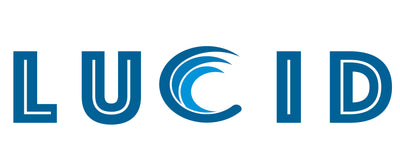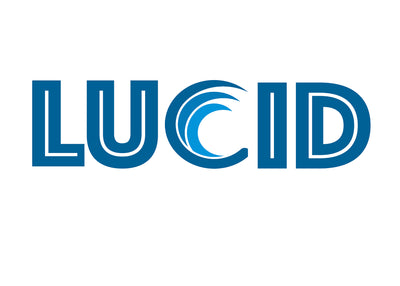
Given the knife edge that the people of the planet now find themselves in, it is now more than ever that we need to preserve the environment or else we risk losing it all. Amidst daily reports of global warming, raising sea temperatures and animal migrations going berserk as a result of un witty human interventions, Klean Kanteen have been trying to keep single-use waste from trashing the world.
Ever since bringing out the first stainless steel, BPA-free reusable water bottle in 2004 that they have been trying to preserve the flora and fauna and on their fifteenth anniversary of the family-owned company, it only seemed fit to discuss ways to protect the natural wonders of the world, wherever they maybe.
- Pack your reusable water bottle: A little goes a long way and by carrying your own reusable bottle you won’t be contributing to the huge mass of plastic floating in our oceans, which in turn leads to global warming. With roughly 500 pounds of plastic enter the ocean every second, and micro plastics being found in the air we breathe, water we drink and seafood we consume and scientists only beginning to fathom the depth of the problem, we might just make out oceans unusable before we reach the bottom of the problem.
- Ditch single use cups, straws and utensils: Having eliminated single use plastic bottles, it only makes sense to discard all such single use plastic packaging and Klean Kanteen has a great variety of reusable straws and cups to choose from.
- Reusable mindset in the grocery store: Bringing your own grocery bags is an easy way to avoid plastic bags especially now that many countries have started placing bans on unnecessary usage of plastic bags. Other than that, try keeping reusable, organic cotton produce bags stored with your grocery totes to avoid packaged produce, and consider bulk-buying some staple items using mason jars or other reusable containers.
- Consider your environmental impact that might not be visible: Microfiber pollution is widespread, pervasive and equally toxic to the environment as the plastics we can see. Choosing organic, natural materials over synthetic options for clothing, rugs, sheets and other household items are the easy alternatives. As excessive washing of synthetic materials causes microfibers to shed into the wastewater stream, making their way through treatment facilities, and ultimately polluting the ocean and drinking water sources, re wearing them is a better option.
- Reduction of food related carbon emission by shopping local: Buying at farmers markets tends to support more sustainable production practices, eliminate or significantly reduce single-use packaging, and depending on where you live, you may even be able to get there without motorized transportation.
- Hosting your own beach, river or lake clean up to help clean up your local coastline or waterway: even if you cannot officially organize a cleanup campaign, maybe you can just pick up the trash as you take a walk along with your friends and reporting these on your local Surfrider chapter will also create awareness.
- Start plastic source reduction in your community: If your city or state has not already passed an ordinance banning or placing a fee on single-use plastic bags at grocery stores and other retail locations, check out Surfrider's Plastic Bag Activist Toolkit for some tried-and-true advice on starting and gaining traction for a campaign against plastic bags. Surfrider volunteers have contributed to hundreds of plastic bag ordinances (and even statewide laws) throughout the country, and your community could be next!
- Advocate for “BYO” Policies. (If you're located in California): With the passage of AB-619, the “Bring Your Own bill,” restaurants in the State of California may now accept clean, reusable consumer-owned containers for takeout! This change to the California Health and Safety Code is a positive step toward a single-use-plastic-free future for the restaurant industry, but it requires individuals to take action to make an impact. If you haven't already, get your own container for takeout (or for bringing your lunch from home). If you're located outside California: check out the bill's text, learn about Surfrider's fight for the passage of this bill, and use your voice to advocate for similar legislation to be passed in your state!
- Observe drought rules, where possible: This is basically conserving the already scarce natural resource religiously; turning off the tap while you shave, brush your teeth, or wash dishes, and aim for reducing your shower time to five minutes or less. Refraining from flushing down any chemicals, pharmaceuticals or products containing plastics or micro beads down the drain, toilet or sink also stops the polluting of water bodies this line drain into.
- Use reef friendly sunscreen and other skin care products: Scientists estimate that up to 14,000 tons of sunscreen enter our marine waterways each year. But that isn’t the only way it harms the environment. Some harmful sunscreen chemicals are not removed completely at wastewater treatment facilities, which mean that when we wash off products containing chemicals like oxybenzone, they can end up in rivers, lakes and the ocean — ultimately harming corals and other marine life.
- Converting your yard into an ocean friendly garden: If you live in an area where grass and other lush, leafy plants are not native, your lawn may be causing more damage than you think. Non-native lawns can degrade local habitat, require excess water and introduce harmful nutrient and pesticide pollutants into the watershed.
- Encourage your favorite restaurants to go Ocean friendly: Learn about Surfrider's Ocean Friendly Restaurants program and support local businesses that reduce their plastic use, offer vegetarian options and only serve sustainable seafood (if any). Or, to find existing Ocean Friendly Restaurants near you, check out Surfrider's web app (go.surfrider.org/ofr-app).
- Use your ballot and purchasing power: To affect change on any scale, we have to use the resources available to us— and our votes are a key resource! In addition to casting your ballot in the next election, consider that with every item you purchase, you’re also casting a vote for the future you want to see, based on the companies you choose to support and the products you choose to consume.
- Join the movement: Surfrider defines a campaign victory as a decision made in favor of the coastal environment that results in a positive conservation outcome, improves coastal access, or does both. In 2018 alone, Surfrider’s network achieved 84 Victories, and we’re well on our way to surpassing that milestone this year. Becoming a Surfrider member supports our mission nationwide, and contributes to our growth and expansion, which ultimately helps us achieve more victories for our ocean and coasts.
- Take action: Find your local chapter, and get involved! If there is no Surfrider chapter near you, check out the Take Action page, follow @surfrider on social media, and write to us to let us know there’s interest in your community.



